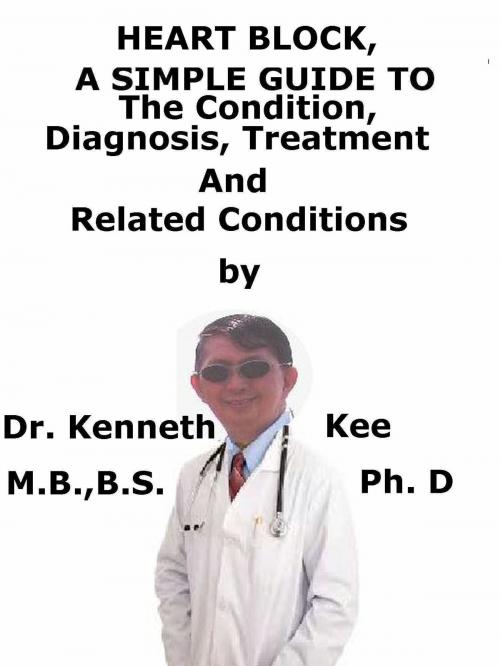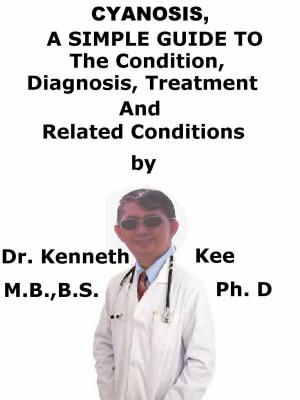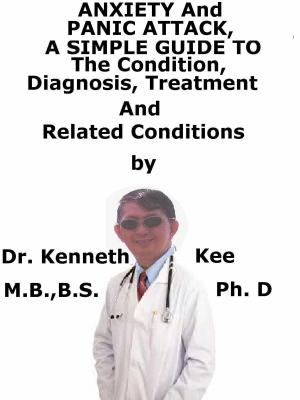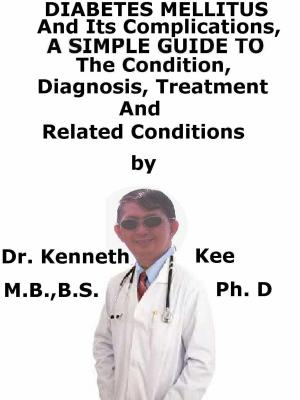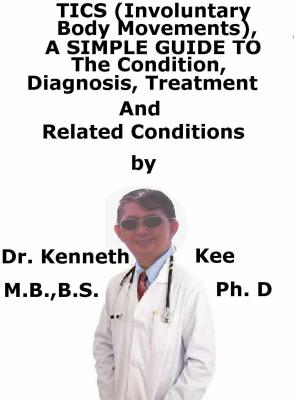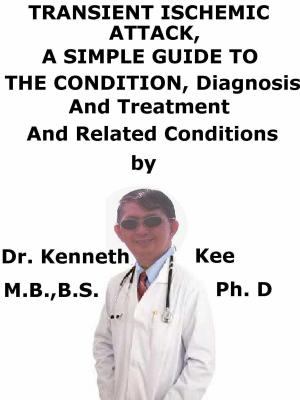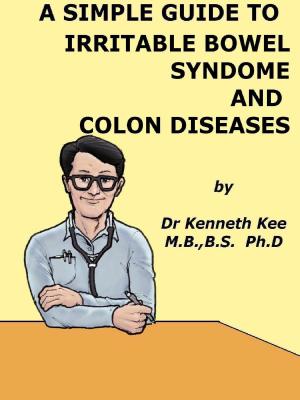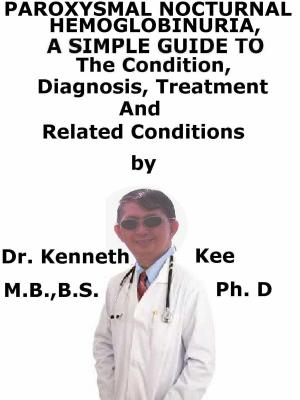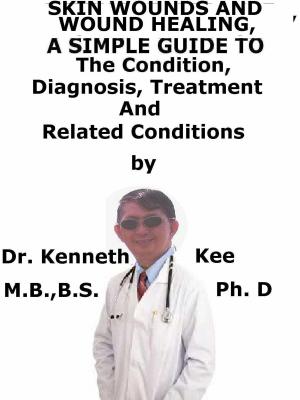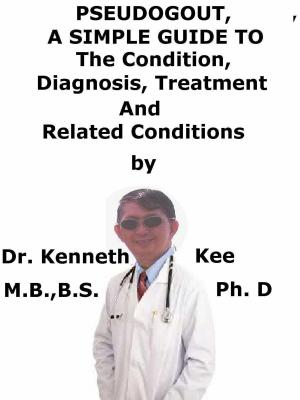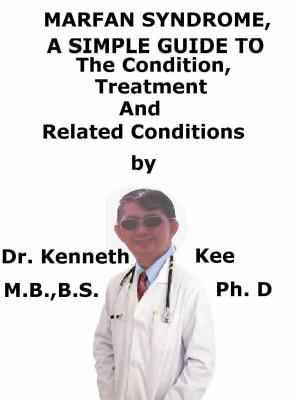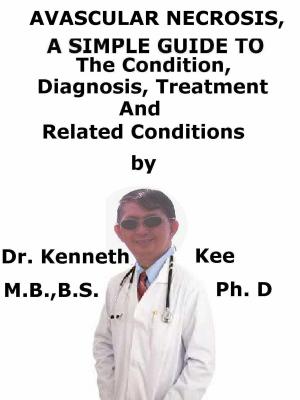Heart Block, A Simple Guide To The Condition, Diagnosis, Treatment And Related Conditions
Nonfiction, Health & Well Being, Medical, Specialties, Internal Medicine, Cardiology, Health, Ailments & Diseases, Heart| Author: | Kenneth Kee | ISBN: | 9781370316977 |
| Publisher: | Kenneth Kee | Publication: | February 1, 2017 |
| Imprint: | Smashwords Edition | Language: | English |
| Author: | Kenneth Kee |
| ISBN: | 9781370316977 |
| Publisher: | Kenneth Kee |
| Publication: | February 1, 2017 |
| Imprint: | Smashwords Edition |
| Language: | English |
Heart block is a medical disorder that affects the heart's electrical system.
The electrical system is the main control of the rate and rhythm of heartbeats.
As it moves, the electrical signal induces the heart muscles to contract and pump blood.
Heart block happens when the electrical signal is delayed or interrupted as it runs through the heart.
Heart block is a form of arrhythmia
Causes:
1. Congenital:
Some people are born with heart block,
2. Acquired:
Acquired heart block is more common than congenital heart block.
Damage to the heart muscle or its electrical system produces acquired heart block.
Damage occurs as a result from diseases, medicines or surgery
a. Damage to the heart from a heart attack or Coronary heart disease is the most frequent cause of acquired heart block.
b. Atherosclerosis
c. Myocarditis or inflammation of the heart muscle.
d. Heart Failure
The symptoms of heart block are dependent on the severity of Heart Block.
1. First-degree heart block may not produce any symptoms.
2. Second-degree heart block may cause the heart to skip a beat or beats and also can cause you to feel giddy or faint.
3. Third-degree heart block decreases the heart's capability to pump blood to the rest of the body.
This type of heart block may cause:
a. Fatigue,
b. Dizziness
Third-degree heart block will need quick treatment because it can cause death
Doctors make use of an ECG (electrocardiogram) to help diagnose heart block
The main treatment for heart block is the Pacemaker.
A pacemaker is a small device which helps to control abnormal heart rhythms.
The pacemaker is placed in the chest or abdomen.
Electrical pulses from the pacemaker can stimulate the heart to beat at a normal rate.
The doctor may need to check the pacemaker several times a year to make sure it is working well.
A pacemaker usually will not limit you from doing sports and physical activity.
First-degree heart block do not need pacemaker for treatment.
TABLE OF CONTENT
Introduction
Chapter 1 Heart Block
Chapter 2 Causes
Chapter 3 Symptoms
Chapter 4 Diagnosis
Chapter 5 Treatment
Chapter 6 Prognosis
Chapter 7 Extrasystole
Chapter 8 Bradycardia
Epilogue
Heart Block is not common in a Family doctor’s practice.
Once in a while I may have cases of first degree heart block or bundle branch block.
In fact as a medical student I had myself tested with an ECG and found that I have mild right bundle branch block.
Heart block is a medical disorder that affects the heart's electrical system.
The electrical system is the main control of the rate and rhythm of heartbeats.
As it moves, the electrical signal induces the heart muscles to contract and pump blood.
Heart block happens when the electrical signal is delayed or interrupted as it runs through the heart.
Heart block is a form of arrhythmia
Causes:
1. Congenital:
Some people are born with heart block,
2. Acquired:
Acquired heart block is more common than congenital heart block.
Damage to the heart muscle or its electrical system produces acquired heart block.
Damage occurs as a result from diseases, medicines or surgery
a. Damage to the heart from a heart attack or Coronary heart disease is the most frequent cause of acquired heart block.
b. Atherosclerosis
c. Myocarditis or inflammation of the heart muscle.
d. Heart Failure
The symptoms of heart block are dependent on the severity of Heart Block.
1. First-degree heart block may not produce any symptoms.
2. Second-degree heart block may cause the heart to skip a beat or beats and also can cause you to feel giddy or faint.
3. Third-degree heart block decreases the heart's capability to pump blood to the rest of the body.
This type of heart block may cause:
a. Fatigue,
b. Dizziness
Third-degree heart block will need quick treatment because it can cause death
Doctors make use of an ECG (electrocardiogram) to help diagnose heart block
The main treatment for heart block is the Pacemaker.
A pacemaker is a small device which helps to control abnormal heart rhythms.
The pacemaker is placed in the chest or abdomen.
Electrical pulses from the pacemaker can stimulate the heart to beat at a normal rate.
The doctor may need to check the pacemaker several times a year to make sure it is working well.
A pacemaker usually will not limit you from doing sports and physical activity.
First-degree heart block do not need pacemaker for treatment.
TABLE OF CONTENT
Introduction
Chapter 1 Heart Block
Chapter 2 Causes
Chapter 3 Symptoms
Chapter 4 Diagnosis
Chapter 5 Treatment
Chapter 6 Prognosis
Chapter 7 Extrasystole
Chapter 8 Bradycardia
Epilogue
Heart Block is not common in a Family doctor’s practice.
Once in a while I may have cases of first degree heart block or bundle branch block.
In fact as a medical student I had myself tested with an ECG and found that I have mild right bundle branch block.
